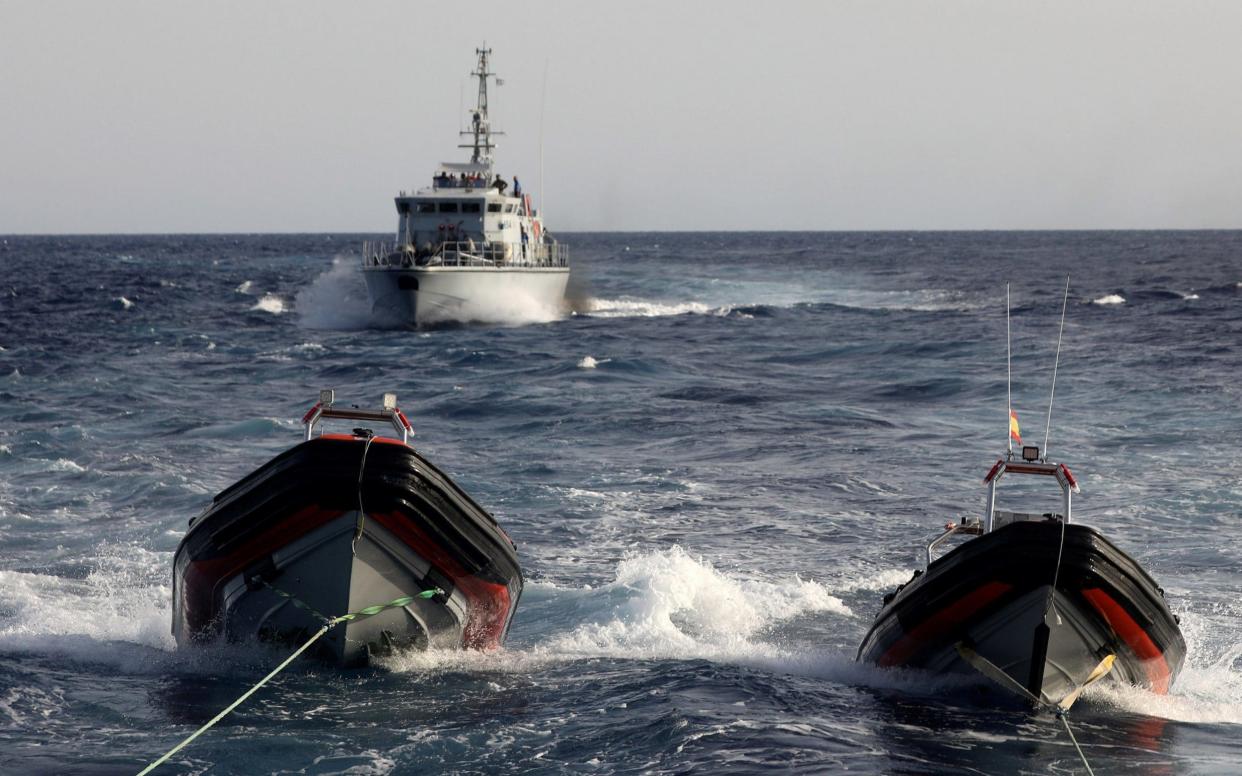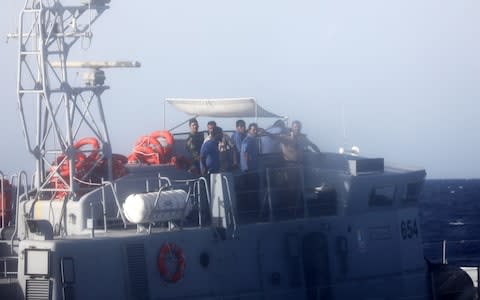Libyan coastguard threatens Spanish NGO ships as tensions rise in Mediterranean

Libya’s coastguard threatened to target a Spanish humanitarian ship rescuing migrants in the Mediterranean this week as tensions continue to grow between NGOs and the Libyan government.
A ship run by the group Proactiva Open Arms was intercepted by a Libyan coastguard vessel on Tuesday and ordered to sail towards Tripoli or risk being fired upon.
“You have to sail now towards Tripoli port. You are under custody, sir. If you don’t follow the orders we will target you,” the Libyan captain warned the Spanish crew by radio.
“I have already warned you before, Libyan government has warned you before but you don’t listen. It’s your problem.”
The Spanish ship was eventually allowed to sail away into the Mediterranean but the confrontation is the most serious since Libya’s coastguard adopted a newly assertive policy several weeks ago.
Three major humanitarian groups - Save the Children, Médecins Sans Frontières (MSF), and Germany's Sea Eye - have all halted their operations because of the Libyan threats and warned that more people will drown as a result.
Ayer vivimos el episodio más difícil #Med Perseguidos, amenazados y secuestrados x GC libios en aguas internacionales.Todo por salvar vidas pic.twitter.com/Fwo33MnEwf
— PROACTIVA OPEN ARMS (@openarms_fund) August 16, 2017
“If humanitarian ships are pushed out of the Mediterranean, there will be fewer ships in the area to rescue people from drowning, said Annemarie Loof, MSF’s operational manager. “There will be more deaths at sea and more people trapped in Libya.”
Proactiva Open Arms, the Spanish group, said it was deciding whether to continue its operations after the run-in with the Libyan ship.
The group said that its boat was 27 miles off the Libyan coast when it was intercepted and therefore far outside of Libyan national waters, which only extend for 12 miles from the coast.
“It is abhorrent that any actors at sea would seek to attack an NGO vessel at work in International waters,” said Save the Children.
So far 2,408 people have drowned crossing the Mediterranean towards Europe this year, a similar number to the same period in 2016, according to the International Organisation for Migration (IOM).

The vast majority of the deaths have been on the so-called “central route” - the dangerous voyage from Libya towards Italy.
Just under 100,000 people have arrived in Italy so far this year, around the same number as the same period last year. But the number of new arrivals in July was significantly down - suggesting that interceptions by the Libyan coastguard were reducing the numbers.
Both Libya and Italy have taken a more aggressive approach to NGOs this summer in the face of complicated domestic politics.
Italy’s government is under pressure to reduce the number of migrants arriving in the country and has authorised a naval mission to help the Libyan coastguard stop migrant boats.
Italy has also demanded that NGOs agree to a code of conduct, which several groups have refused to sign. Many Italians believe the NGO boats encourage migrants to make the journey towards Europe and act as a "pull factor".
The Italian naval mission has also stirred anger in Libya, where many people are furious at ships from a former colonial power operating in Libyan waters.
Public pressure has spurred Libyan forces to become more assertive in confronting the NGOs, which they accuse of violating Libya’s sovereignty.

 Yahoo News
Yahoo News 
